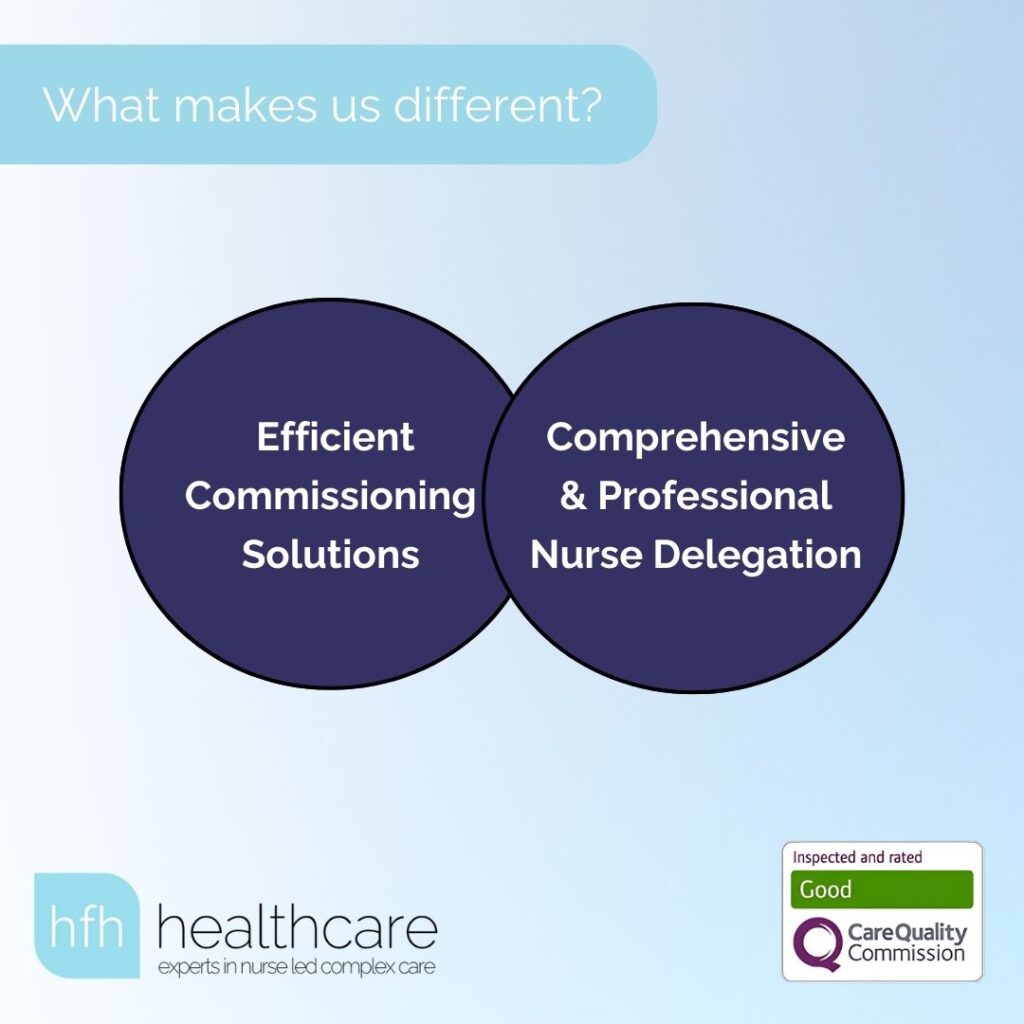Safe Delegation in Healthcare: Why Training Must Be Tailored, Supervised, and Patient-Specific
Nurse Delegated Health Tasks refer to specific healthcare duties that a registered nurse (RN) delegates to another healthcare professional, such as support workers or healthcare assistants, who are not RNs but have appropriate training and competence to carry out the task under the nurse’s supervision. These tasks can include administering medication, wound care, or monitoring vital signs. In the context of Treatment of Disease, Disorder, or Injury (TDDI), and under the regulations of the Care Quality Commission (CQC), additional emphasis is placed on ensuring that delegated care meets regulatory standards and provides safe, effective, and compassionate care.

Best Practice Guidelines: RCN, NMC, and CQC
The Royal College of Nursing (RCN), the Nursing & Midwifery Council (NMC), and the Care Quality Commission (CQC) outline key guidelines for the delegation of healthcare tasks:
1. Right Task
Tasks must be within the scope of the healthcare worker’s role and appropriate for delegation. They should not require complex clinical judgement or advanced skills that only a registered nurse can provide. Under CQC guidelines, the task must align with regulatory standards of care and not compromise patient safety (CQC, 2023).
2. Right Circumstances
Delegation must be based on the patient’s specific needs, the environment, and the experience of the support worker. It is crucial to recognise that training and delegation are relevant to the specific individual and their care needs at that time. The skills acquired in training cannot be assumed to be transferable to another patient’s healthcare needs without appropriate reassessment, nor can they be expected to remain indefinitely appropriate for the same patient. CQC requires that circumstances allow for the safe delivery of care, particularly in domiciliary and community settings (RCN, 2021).
3. Right Person
The individual to whom the task is delegated must have the appropriate knowledge, skills, and competence, verified through training and assessment. The TDDI framework highlights the importance of robust training programmes, ensuring staff are competent to carry out tasks safely. However, the skills gained during training apply to the specific care plan for an individual patient and may not be suitable for others without reevaluation. Under CQC regulations, organisations must demonstrate that staff have received adequate training and are regularly assessed for competence (NMC, 2018; CQC, 2023).
4. Right Communication
Clear and detailed instructions must be provided to the support worker. The nurse must communicate the specifics of the task, expected outcomes, and any potential complications that need to be observed. Communication is also key for complying with CQC standards, where transparency and clear records of care provided are vital (RCN, 2021).
5. Right Supervision and Evaluation
The nurse remains accountable for the delegated task and must continue to monitor and supervise the care provided. This includes:
- Conducting regular checks on the patient’s condition.
- Providing ongoing support or additional training where necessary.
- Evaluating the performance of the support worker in carrying out the task.
- Adjusting the care plan as needed to reflect changes in the patient’s condition.
Under CQC guidelines, the organisation must ensure that mechanisms are in place to supervise, monitor, and review care delivery to ensure it meets regulatory standards and patient safety is maintained (CQC, 2023).
Delegation vs. Abdication
The core principle is that delegation is not abdication. While nurses may delegate specific tasks, they retain responsibility for the overall care and outcomes of the patient. Ongoing monitoring and supervision are critical to ensure that delegated tasks are performed safely and competently (NMC, 2018).
The TDDI framework and CQC standards further emphasise that outsourcing training to third parties without the necessary mechanisms for monitoring and supervision can prevent the healthcare task from being safely delegated. If the nurse or organisation cannot oversee the quality of the training or verify the individual’s competence, the task should not be delegated (CQC, 2023).
Monitoring and supervision are key to:
- Ensuring patient safety: Delegation must not compromise the quality of care and must adhere to CQC regulations.
- Maintaining accountability: The nurse remains accountable for the patient’s care, even when delegating tasks (NMC, 2018).
- Upholding care standards: Ongoing supervision ensures that delegated tasks are carried out in line with professional, legal, and CQC standards (RCN, 2021).
Conclusion
The RCN, NMC, and CQC stress the importance of careful delegation, based on the support worker’s competency, patient needs, and continued oversight. Delegation is not merely offloading responsibility, but an active process that ensures the safety, quality, and accountability of care (RCN, 2021; NMC, 2018).
It is crucial to recognise that training and delegation are relevant to a specific individual and their care needs at that time. The skills acquired cannot be assumed to be transferable to the specifics of another patient’s healthcare needs without proper reassessment, nor can they be expected to remain appropriate for the same patient indefinitely. Education without ongoing monitoring or supervision should be considered for awareness purposes only, not as a skill set that can be used to safely deliver care. Without continuous assessment and oversight, any training provided cannot be relied upon as sufficient for the safe and effective delegation of tasks, and therefore should not be considered appropriate for providers to use in delivering healthcare. Under CQC regulations, organisations must demonstrate not only that staff are trained but that there is a system in place to continually assess and supervise their competence to deliver delegated care safely (CQC, 2023).
HFH Healthcare’s comprehensive and professional nurse case management includes employing all nurse case managers who are responsible for training, conducting competency assessments, and providing ongoing monitoring and supervision for their care teams. Collaborative working with wider professionals ensures our nurses’ clinical skills remain compliant with current best practice. This approach gives service commissioners the assurance of safe and quality complex care at home, comparable to specialist clinical placements or nurse-delivered care.
References
- Care Quality Commission (CQC), 2023. The fundamental standards. Available at: https://www.cqc.org.uk
- Nursing & Midwifery Council (NMC), 2018. The Code: Professional standards of practice and behaviour for nurses, midwives and nursing associates. Available at: https://www.nmc.org.uk
- Royal College of Nursing (RCN), 2021. Accountability and delegation: A guide for the nursing team. Available at: https://www.rcn.org.uk








